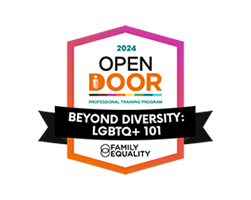Egg Donation programs are great for many different types of families. According to Resolve.com, about 12% of married women have difficulty getting pregnant. This is roughly 1 in 8 couples. Because of this, many are turning to egg donation to grow their families. This is rewarding for egg donors as they get the opportunity to help families grow. That satisfaction and the monetary stipend are great incentives, however, there are risks involved.
Health Threats
One risk that donors can encounter is OHSS. This is also called Ovarian Hyper Stimulation Syndrome. When this happens, it can lead to other health-related issues like bloating or irritable digestion problems. It’s not super common, but it does occur in a very small percentage, 10-30%. Many women who develop OHSS also encounter fluid build-up in their abdomens, which can be extremely uncomfortable. In some situations, this could require immediate medical care. To learn more, head over and read this article about Ovarian Hyperstimulation.
Flawed Family Planning
Another risk that egg donors face is having more children than anticipated. Women who go thru the egg donation process are not to engage in unprotected intercourse afterward as they could still have many matured eggs… which of course could lead to a multiple-birth pregnancy. Egg donors are asked to abstain from sex until they have their next menstrual period.
Fertility Drug’s side effects
There are side effects to almost every medication on the market, and fertility meds have theirs as well. But in a recent article published by ASRM, they state, ‘’.. Currently, there are no clearly documented long-term risks associated with oocyte donation, and as such, no definitive data upon which to base absolute recommendations. Furthermore, there is a paucity of long-term follow-up data for repeat oocyte donors. However, because of the possible cumulative risks to and future needs of an individual donor, as outlined in the preceding discussion, it may be reasonable and prudent to limit the number of stimulated cycles for a given oocyte donor to no more than six.” There has been a study on the risk of breast cancer linked to fertility treatments. You can read about it here.
This aside, fertility medications can trigger some unwanted and/or uncomfortable physical outcomes. A few of those could include headaches, bloating, abdominal pain, nausea, and even fatigue. These side effects happen after retrieval. Although a very slim chance, the needle used for the retrieval can also puncture or damage other organs accidentally. If this happens there could be internal bleeding, and pain requiring immediate medical attention.
Those choosing to participate in an egg donation process can expect to have their personal lives inconvenienced a little until after retrieval. This process takes about a month from the start of meds to the retrieval of the eggs. There will be 8-10 required visits to the doctor. Medication has to be taken regularly and on a strict schedule. This may very well affect your work or school. There is some flexibility on the timing of appointments and most clinics will work with you for the best collaboration.
Even though there are inconveniences and discomforts to being an egg donor, many donors welcome the opportunity to do it again. The reward of helping create a happy family overshadows the above-mentioned risks for most.
We welcome you to visit www.EggDonorInformation.com to learn more about other risks of being an egg donor.
We help Intended Parents Create Happy Families via Egg Donation & Surrogacy with the help of caring Egg Donors & Surrogates.
Donor sibling registry, egg donation process, Egg Donor Solutions, Intended Parents, Why use an agency?, Intended Parent Resources, Intended Parent Webinar, Getting started, Why our agency?, Selecting your donor.








